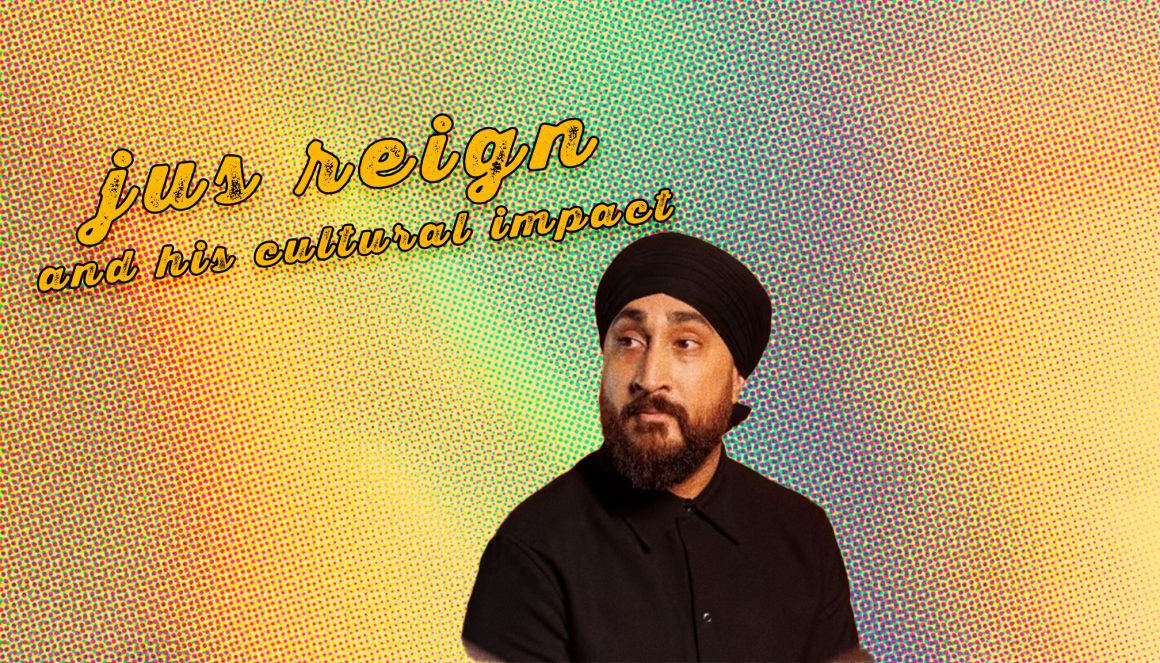
Navigating identity and family dynamics: A reflection on Late Bloomer
By Aleena Matharu, March 14 2024—
Jasmeet Rania, also known as Jus Reign, is renowned in the South Asian community for his comedic YouTube content and has brought a unique voice to the portrayal of South Asian households. Late Bloomer entertains and sheds light on the challenges of growing up in a toxic immigrant household. Rania’s older YouTube videos delve into more of a comedic approach that resonates with many in our community as he humorously navigates the complexities of balancing traditional values with the Western world.
While Late Bloomer does have a lot of comedic aspects, this show takes a deeper look into family dynamics and relationships with religion, particularly resonant for Punjabi Sikhs. In the show, Jus Reign bases the show loosely on his life, playing the character Jasmeet Dutta, a content creator who is struggling with his career and family life. In the episode “Turban”, many Sikh people can relate to this episode as it discusses the Turban and keeping your kes (hair). Growing up within the Sikh community, I was taught that our hair is a gift from God and that it holds importance to our faith as it signifies spirituality, royalty and honour. In the show, while Rania knows this, he still does not fully understand and struggles with his connection. I deeply resonated with finding my space within Sikhism as it has not been easy, especially when it comes to keeping my kes. Of course, many Sikh people know the Wikipedia reason why we should keep our hair like in the show, but finding a personal meaning or connection can be difficult as it is looked down upon even asking a question about the religion and its traditions. Even when looking at my brother, father and grandparents who wear the turban creates a lot of responsibility as you are now representing the values of Sikhism. This can come with so much commitment that many have struggled to keep their kes. Throughout the episodes, we get flashbacks to young Rania, whose first memory of tying the turban is with his dad. Usually within Sikh culture, the father teaches the son how to tie the turban. Rania considers asking his dad why Sikhs wear a turban, but the idea is daunting as you have to uphold the same values that Sikhism teaches us. Their relationship has grown distant and strained as they’ve both aged, adding complexity to what should be a simple question. This shows a new layer to his problem and also shows the emotional absence of fathers and how challenging it can be to have open conversations about religion, faith and spirituality.
Even though this is the first time we get sort of a glimpse of Rania’s broken relationship with his father, we get more of it throughout the show, especially shown in verbal and physical abuse. In the show, most of the conversation between Rania with his parents is based on humiliation and insults, which eventually turn into physical abuse when Rania’s dad slaps him in the season finale. Coming from a Sikh Punjabi Woman, this topic of abuse is normalized to the point where many of us do not see a problem with it, and when it is brought up, many brush it off. This show has sparked meaningful discussions about the intricate dynamics of parent-child relationships and their impact on various aspects of life. Rania’s struggle with his connection to Sikhism mirrors his turbulent relationship with his father, highlighting a common experience among children of immigrants. This portrayal resonates with many, as our relationships with our parents often influence our other interpersonal connections.
Watching this show is honestly insane seeing how far Jus Reign has come from watching his YouTube comedic skits from when I was younger provided an outlook and being able to relate to another person. However, I feel like Late Bloomer is what I and many South Asians need, as it makes you question aspects like family dynamics within your own life.
This article is a part of our Voices section and does not necessarily reflect the views of the Gauntlet editorial board.
